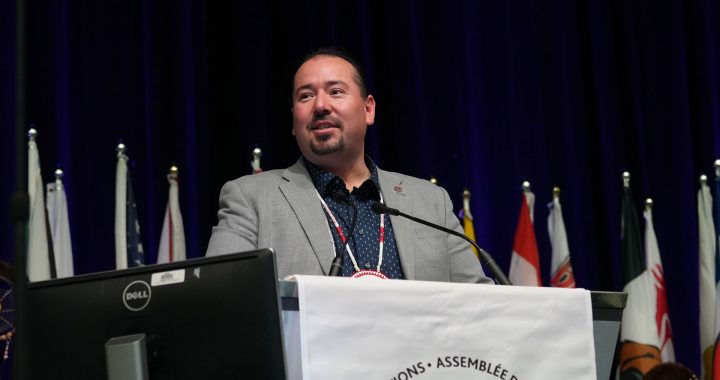First Nations leaders continue to make arguments for and against accepting a $47.8 billion deal with Canada on long-term reform of the on-reserve child welfare system.
The draft final settlement agreement on long-term child welfare reform was initially announced by Assembly of First Nations National Chief Cindy Woodhouse Nepinak at a chiefs assembly in Montreal this summer.
Nation to Nation interviewed three people about the FSA for this week’s episode.
First Nations Child and Family Caring Society executive director Cindy Blackstock and Tsilhqot’in National Government Tribal Chairman Joe Alphonse were interviewed before the Calgary assembly and AFN Ontario Regional Chief Abram Benedict was interviewed in Calgary.
Blackstock and Alphonse are both against the agreement and Benedict in favour.
Blackstock said there are a number of problems with the FSA as it exists.
These include a lack of consultation with First Nations leaders before the agreement was signed, an inadequate dispute resolution mechanism and the agreement being vulnerable to a government change in Ottawa.
Alphonse said he also agrees there has been insufficient consultation on the FSA and that he doesn’t really trust any agreement signed between the federal government and the AFN.
He said his preference is for direction on First Nations child welfare to come from organizations like the Canadian Human Rights Tribunal rather than politicians in the Trudeau government or the Assembly of First Nations.
Benedict said he believes First Nations in Ontario have been sufficiently consulted on the FSA and it is a good first step in long-term child welfare reform.
He said First Nations in Ontario in particular need this federal funding sooner than later because communities need to assert their jurisdiction in child welfare and the provincial government has traditionally done a poor job of supporting First Nations kids both on and off-reserve.












